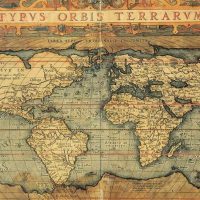Category: History Essay Examples
See our collection of history essay examples. These example essays are to help you understanding how to write a history essay. History is a fascinating puzzle with both personal and cultural significance. The past informs our lives, ideas, and expectations. Historians study the past to figure out what happened and how specific events and cultural developments affected individuals and societies. Also, see our list of history essay topics to find the one that interests you.
Historians of the ancient world have come to recognize that wisdom literature represents the expressions of cultures and civilizations that rely on human experience to cope with life’s mysteries and uncertainties. The genre is pervasive over a wide spectrum of peoples in many ages and places. Wisdom literature …
Xerxes was the oldest son of Darius I, from his first wife, Atossa, daughter of Cyrus II. Xerxes is familiar to students of the Bible since he appears in two books: in the book of Esther he is called by his Hebrew name Ahasuerus; and in the book …
According to Chinese history taught until the early 20th century, culture heroes such as the Divine Farmer and Ox Tamer taught the people the arts of civilization. The Three Emperors (Yao, Shun, and Yu), also mythical, followed the culture heroes, who were venerated because they abdicated in favor …
Xiang Yu was a brilliant general who contributed to the fall of the Qin (Ch’in) dynasty but failed to become the master of China. The unexpected death of the first emperor of the Qin in 210 b.c.e. created a crisis that ended the 10-year-old dynasty. In the ensuing …
Chinese texts describe the Xiongnu, a nomadic people, as ferocious warriors and raiders. Powerful Xiongnu men practiced unlimited polygamy, and when a leader died, his successor married all his father’s or grandfather’s wives except his mother. Likewise a surviving brother took over his deceased brother’s widows. Differences in …
Xunzi means “Master Xun” in Chinese; his personal name was Qing (Ch’ing). He was a heterodox Confucian philosopher, and his collected writings of 32 chapters are named the Xunzi. Each well-argued chapter is devoted to a single topic, such as self-cultivation, proper kingly rule, the recruitment of officials, …
The Yamato court is known as the birthplace of the Japanese political state. It is a term applied to the political system of the Kofun period but also its development and refinement in the late fifth to seventh century’s c.e. The Yamato state unified north Kyushu, Shikoku, and …
In Chinese accounts of the beginning of their civilization, three rulers of exceptional virtue followed the legendary culture heroes Fuxi (Fu-hsi), Shengnong (Shengnung), and the Yellow Emperor; they were Kings Yao, Shun, and Yu. Their shared characteristic was that each rejected his own son as unworthy and tried …
Beginning in Kyushu and spreading eastward toward the north, migrants from mainland Asia introduced Yayoi culture to Japan, especially via the Korean peninsula. The Yayoi culture of Japanese history was evident between the third century b.c.e. and the third century c.e. The population practiced animism, that is, they …
According to Chinese tradition or mythology, civilization began as a result of the innovations introduced by culture heroes at the beginning of the third millenium b.c.e. The first ones were Fuxi (Fu-hsi) the Ox Tamer and Shengnong (Sheng-nung) the Divine Farmer, who taught people to domesticate animals, instituted …
The Yellow Turban Rebellion was a messianic uprising (184–185 c.e.) that was both a symptom and cause of the fall of the Han dynasty (202 b.c.e.–220 c.e.). It occurred during the disastrous reign of Emperor Lin (r. 168–189 c.e.) Ascending the throne at age 12, Lin was under …
Yemen is the state occupying the southwestern part of the Arabian Peninsula. Because of the extensive desert in the interior of the peninsula, Yemen has undemarcated borders with Oman to the east and Saudi Arabia to the north. The western and southern borders are marked by the coast, …
In the second century b.c.e. the Yuezhi people, described as light-skinned and speaking an Indo-European language (and without a written language), lived in western Gansu (Kansu) Province and the region between the Altai and Tianshan (T’ien-shan) Mountains in present-day northwestern China. They were hereditary enemies of another nomadic …
Yohanan ben Zakkai was the religious and political leader who laid the foundation for rabbinic Judaism after the fall of Jerusalem and its Temple. H. J. Schoeps said of his leadership: “The state was changed into an academy, the royal dynasty into a patriarchate, and the Sanhedrin left …
Zhang Qian was the greatest explorer in ancient China, having made two long journeys in 139 and 115 b.c.e. He was also an important diplomat for the Han emperor Wu. After suffering a major defeat at the hands of the nomadic Xiongnu (Hsiung-nu), Liu Bang (Liu Pang), founder …
The Zhou, together with the preceding Xia (Hsia) dynasty and Shang dynasty, are called the Three Dynasties in Chinese history. They account for two millennia that are the formative era of the Chinese civilization. All three dynasties are the products of the Neolithic civilization of northern China, each …
Western European scholars have traditionally referred to ancient Iranian religion after the acknowledged founding figure of the political formulation of that religion, Zarathushtra. The term Zoroastrianism was derived from his name. Today the faith is better known by the name of its devotees, the Parsis. In the ancient …


